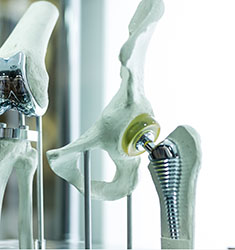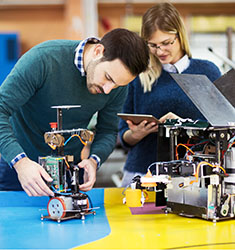Program Description
The Medical Laboratory Science baccalaureate program prepares students with the medical and scientific knowledge and technical skills required to work in a modern diagnostic laboratory. Medical laboratory scientists perform manual and automated laboratory analyses on biological specimens to aid in the diagnosis, treatment, monitoring, and prevention of diseases. The Medical Laboratory Science program offers three tracks: 2+2 (first degree seeking students), post-baccalaureate (second degree seeking students), and categorical (non-degree seeking post-baccalaureate students specializing in a specific content area). Accredited by the National Accrediting Agency for Clinical Laboratory Sciences (NAACLS), students completing a bachelor’s degree in MLS are eligible to sit for national certification examinations as a Medical Laboratory Scientist.
Students in a STEM major may complete a minor in MLS, which is ideal for those interested in pursuing a career in health sciences. Students completing the minor in MLS are not eligible to become certified as a Medical Laboratory Scientist.
The Student Experience
Students who major in MLS acquire the qualifications, attitudes, and professional integrity necessary to excel in the field of medical laboratory science. Admitted annually, each MLS cohort develops a supportive network of classmates. During the first year of professional coursework, students are supported by dedicated faculty who are invested in developing their foundational skills and knowledge, which are advanced during their final year through clinical rotations in local laboratories.
Students also have the opportunity to participate in elective rotations, such as Utah Public Health Lab, as well as regional and international experiences. Graduates of this exciting program are equipped for rewarding careers in science and medicine where they can make a meaningful impact.
Career Opportunities
Graduates of the MLS BS program can apply for national certification and are thoroughly equipped for abundant opportunities in the clinical laboratory field. Certification as a laboratory professional can result in improved job prospects, higher salaries, and greater career satisfaction. Students may also choose to work in industry, research, public health, forensics, and/or pursue additional graduate-level education.

 Medical Laboratory Science
Medical Laboratory Science


